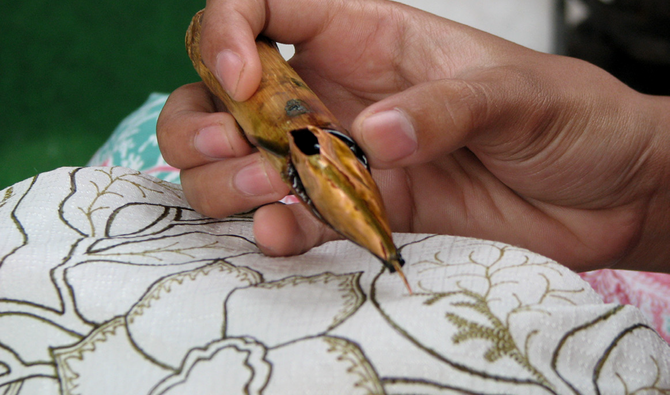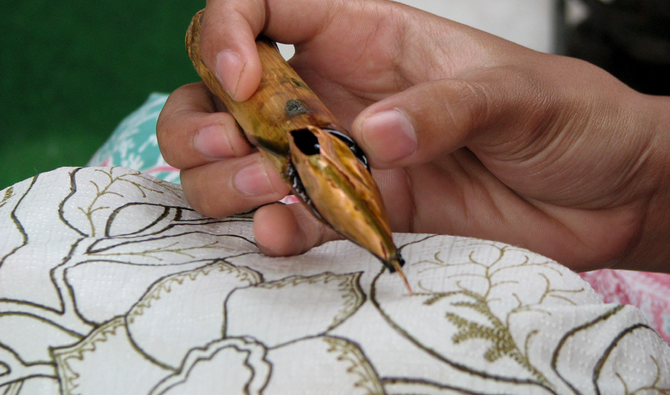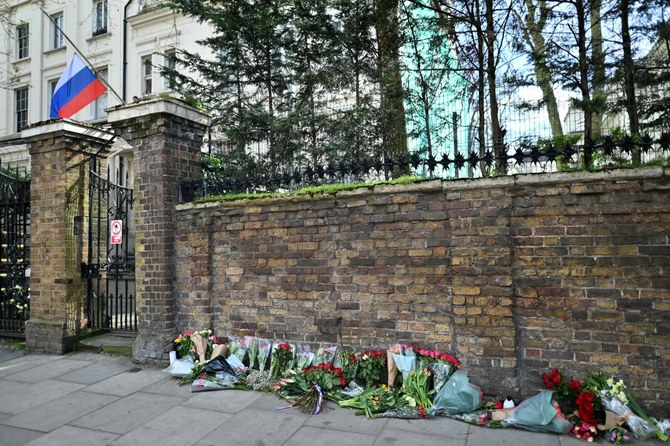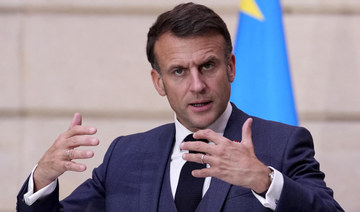JAKARTA: When Chinese state news agency Xinhua posted a video clip last week claiming batik as a traditional Chinese art form, some Indonesians responded with fury on social media, with several accusing Beijing of “cultural appropriation.”
In the July 12 tweet, the news agency reported that batik – a technique of hand-dyeing fabrics with removable wax – was a “traditional craft common among ethnic groups in China,” and had evolved in modern times, and was practiced by ethnic minority groups in Guizhou and Yunnan.
The tweet ended with the hashtag #AmazingChina and a 49-second clip demonstrating how patterns on the fabric are processed. It has been retweeted and liked thousands of times.
However, experts say the claims are far from the truth.
“Batik is a terminology typical to Indonesia. In terms of etymology, I don’t think there are words and pronunciation like batik in Chinese dialects,” Agni Malagina, a researcher on Indonesia-China affairs, told Arab News on Saturday.
Following the tweet, netizens took to the social media website to “educate China” on the origin of the word batik. Several said it was coined from the Javanese words “amba” and “tik,” which means to mark or draw dots. A user named Kiki urged China to be “a country with pride, not just to copy and claim the property of other nations.”
In a harsh statement, Twitter user @mpuanon said: “This is truly a counterfeit batik. The design is very basic and simple. The only original thing that came of out China is COVID-19, the China virus.”
The batik process also includes drawing on spots, followed by an application of wax on the cloth using canting.
“The canting itself is a tool typical of Indonesia,” said Malagina, who added that although the technique to hand-dye on fabric using wax is also found in other cultures, batik as a piece of cloth is used extensively in various social contexts and rites of passage in Indonesia — from birth and marriage to death.
It is common in Indonesia to cover a dead body in batik while waiting for it to be bathed. It is then wrapped with a burial shroud before the funeral.
Malagina said some motifs carry a philosophical meaning and are worn for special occasions, including marriage.
“For example, the truntum motif represents unconditional and long-lasting love. It is worn by parents of the bride and the groom during a marriage ceremony, as a symbol of eternal love for their children,” Malagina said, adding that different motifs also represent different regions.
Batik produced by regions on the northern coast of Java — where Chinese and other foreign migrants arrived in ancient times — tend to have vibrant colors, with red representing the Chinese influence and blue representing a European influence.
In contrast, batik produced from inland regions, the ancient home of Javanese kingdoms, tend to have earthy colors.
“This is what makes batik an Indonesian cultural heritage,” Malagina said.
Recognizing the cultural value of the art, UNESCO designated the Indonesian batik as a “Masterpiece of Oral and Intangible Heritage of Humanity” on Oct. 2, 2009, with the date celebrated as National Batik Day ever since.
After the uproar over Xinhua’s claim, the Indonesian foreign ministry ended the controversy with two tweets on July 13, explaining that batik is “an ancestral heritage and treasured in Indonesians’ daily lives.”
Xinhua later tweeted a revision.
The agency said: “The ancient Chinese craft of wax printing is highly skilled and time-consuming. The craft is also known as batik, a word of Indonesian origin which refers to a wax-resist dyeing technique practiced in many parts of the world.”
























